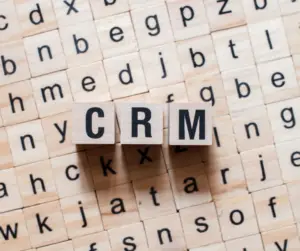The COVID-19 pandemic has exposed vulnerabilities in global supply chains, and for companies to survive and thrive in a post-pandemic era, they need to start mitigating risk.
In the last 25 years, companies around the world have created “incredibly complicated, complex global supply chains” designed for cost and efficiency, said Susan Lund, a partner at the McKinsey Global Institute, in an episode of the McKinsey Podcast. But these supply chains were built with hardly a thought on “what could go wrong along the way.”
Ed Barriball, a partner at McKinsey who specializes in manufacturing, supply chains, and logistics agreed that companies should not focus on the next shock, rather they should look into their own vulnerabilities.
“What do you control? Where are you single sourced? Where do you not have visibility in your supply chain that you should?” Barriball said in the podcast.
Going beyond the supply chain, Lund and Barriball, who are also authors of the McKinsey Global Institute report “Risk, resilience, and rebalancing in global value chains,” use the term value chain to include where the raw materials come from and how they come together at each step.
Resiliency comes from understanding the company’s full network of suppliers and taking steps to address the gaps, Lund added. Here transparency becomes all the more important.
“[B]y understanding the deeper tiers of your supply chain, companies are finding that they have critical potential bottlenecks,” Lund said.
She added that even before the COVID-19 pandemic struck, the companies they surveyed, on average, expect to witness a disruption to their production lines of one to two months, every 3.5 to 4 years.
And the financial toll of these disruptions could be great.
The McKinsey report found that, on average, a company could expect, over a decade, to lose two-thirds of their profits in one year due to disruptions that are becoming increasingly frequent.
How can organizations be more resilient? It’s no secret that high-performing companies make full use of technology, such as cloud solutions, to manage their complex supply chains.
Barriball also cited rethinking the way companies manufacture their products as a way to improve resilience and productivity. Diversity in sourcing and simplifying the way a product is made could potentially reduce vulnerabilities when shocks like the COVID-19 pandemic occur.
But for many industries, there is still a lot of room for improvement, especially in the area of digitization. Citing a survey they did in May 2020, Lund said that there was only one industry—aerospace and defense—wherein a quarter of the companies surveyed thought they had already fully digitized their supply-chain operations. In all other industries, the percentage was lower.
With more shocks on the horizon, companies need to turn their attention toward investing in technology that offers both resilience and efficiency, not one over the other. The end result: more agile, innovative organizations.





